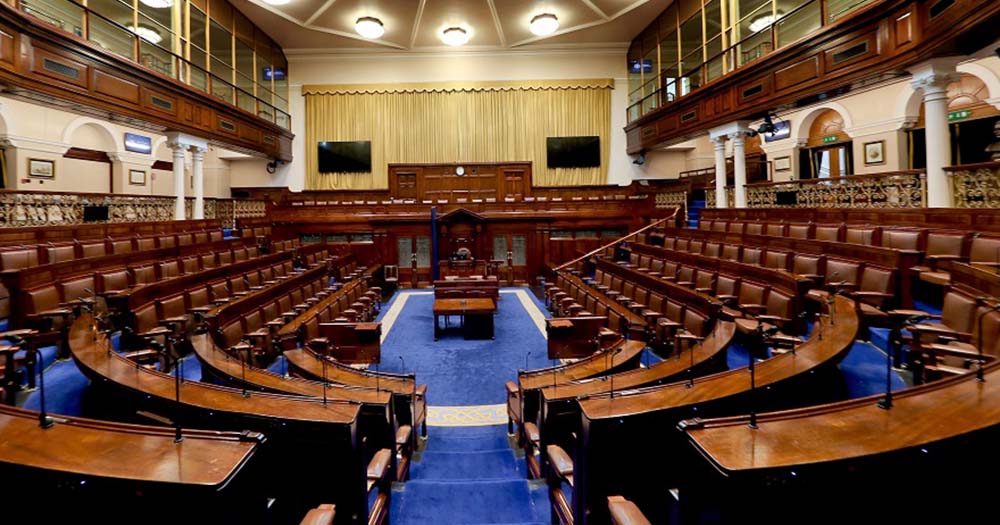The long-awaited Hate Offences Bill came before the Oireachtas earlier this month and will now be subject to much scrutiny and debate on the road to enactment in Ireland. Once enacted, it will finally bring Ireland into line with the rest of Europe in having specific Hate Crime legislation. It will also update our laws against Incitement to Hatred.
For the LGBTQ+ community, who have witnessed a hugely disturbing spate of violent, hate-driven attacks in recent times, there is a clear demand for effective legislation as part of a wider societal response against the scourge of hate and extremism. It has certainly been a leading legislative demand for the National LGBT Federation (NXF) since our own ‘Burning Issues’ research identified it as a key community concern as far back as 2016.
LGBTQ+ people know only too well that this is not an abstract or theoretical debate and why robust criminal justice measures are an essential element in sending a clear and unequivocal message that targeting people on account of who they are will not be tolerated. It’s why, for example, the NXF and LGBT+ Ireland, among others, support the addition of a ‘demonstration’ as well as ‘motivation’ test in the bill, to ensure that hate offences can be effectively prosecuted and do not suffer from the same widely recognised deficiencies that characterised the soon to be repealed and replaced 1989 Incitement to Hatred Act.
We also welcome the fact that the Bill explicitly covers online hate, the proliferation of which is having real world consequences. Allied with the Online Safety Bill, we hope that this signals a real determination to tackle the ‘wild west’ nature of the online world and a failed policy of ‘self-regulation’.
Crucially, the Bill is fully LGBTQ+ inclusive. In addition to sexual orientation, it also protects those targeted on account of their gender identity or expression. Sex Characteristics have also been included to ensure that Intersex people are covered under the new legal regime.
We do believe that key definitions in the Bill can be made more robust. We agree with expert testimony presented at a recent Council of Europe Hate Crime event in Dublin, that terms such as ‘hate’ and ‘hatred’ should be more clearly defined in the legislation. However, while wishing to avoid excessive vagueness and subjective interpretations, we also do not want an overly proscriptive approach.
We are confident that an effective solution can be arrived at and welcome the fact that Government has signalled a willingness to further engage around these points as the Bill makes its journey through the legislative process.
Comprehensive training for those tasked with enforcing the new provisions is another crucial element in ensuring that the new laws deliver for victims of criminal hate. Indeed, the importance of effective training & education for policing and law enforcement was one of the key take-aways from the Council of Europe Roundtable on combatting LGBTQ+ related hate crimes. This is all the more important when, according to the Council of Europe, just 14% of LGBTQ+ victims of hate offences across Europe currently make a report.
It was also very reassuring to learn at the same conference that the European Commission is currently working on a proposal that would elevate hate crime to the most serious strata of EU wide crimes, alongside the likes of terrorism.
In attacking a person’s inherent identity, the hate crime perpetrator is not merely singling out an individual but indeed is seeking to instill fear and anxiety in an entire community. It’s the ultimate ‘signal’ crime. In response, society must ‘signal’ that such crimes against LGBTQ+ and other vulnerable communities will be met with the utmost condemnation.
There will be attempts to obfuscate and muddy the waters by those who are more interested in framing the Bill as part of a wider – and largely imported – ‘culture war’ agenda rather than the actual reality of ensuring that hate crime can be properly tackled.
Trans people find themselves the frequent focus of these ‘culture war’ driven narratives, even though they are one of the most vulnerable communities impacted by hate crime and are certainly entitled to the same protections afforded to others in the Bill.
We will also hear claims that ‘free speech’ is supposedly being threatened, as if Ireland, in legislating against extreme criminal hate speech rather than the merely offensive, is somehow departing from democratic norms when in fact nearly every single EU state prohibits incitement to hatred and violence. Far from being anti-democratic, such provisions are the hallmark of a civilised society.
Legislators in particular must not allow themselves to be side-tracked by such false narratives that have little to do with the substantive issues at stake.
The Hate Offences Bill is too important a piece of legislation to be in any way derailed. It needs to be enacted as a priority.
© 2022 GCN (Gay Community News). All rights reserved.
Support GCN
GCN is a free, vital resource for Ireland’s LGBTQ+ community since 1988.
GCN is a trading name of National LGBT Federation CLG, a registered charity - Charity Number: 20034580.
GCN relies on the generous support of the community and allies to sustain the crucial work that we do. Producing GCN is costly, and, in an industry which has been hugely impacted by rising costs, we need your support to help sustain and grow this vital resource.
Supporting GCN for as little as €1.99 per month will help us continue our work as Ireland’s free, independent LGBTQ+ media.

comments. Please sign in to comment.